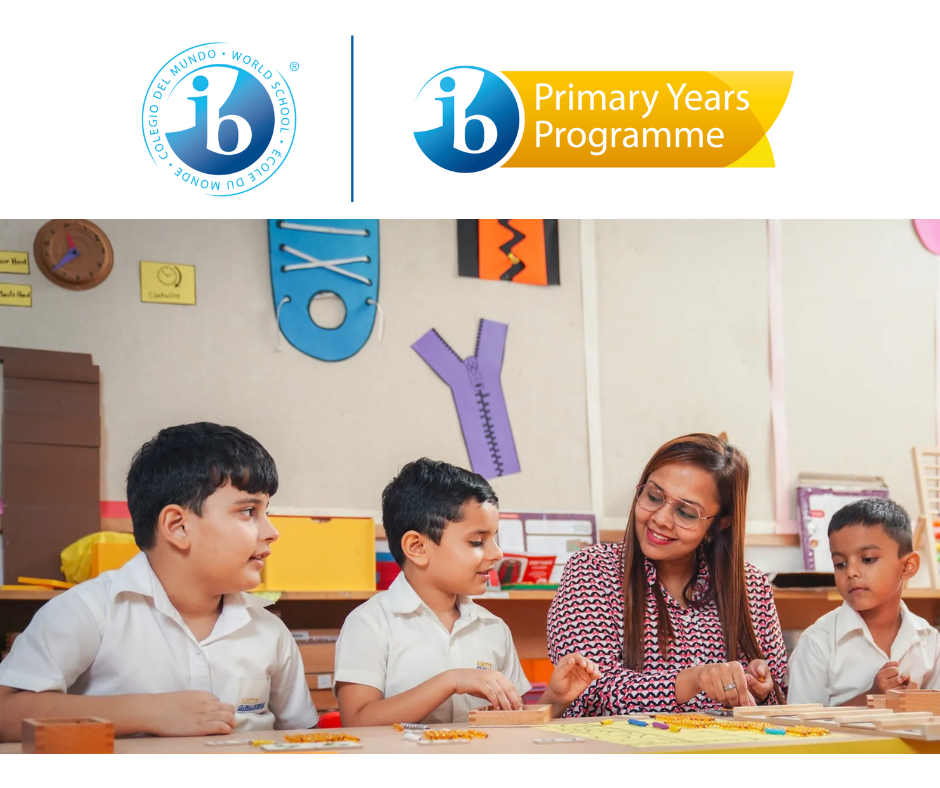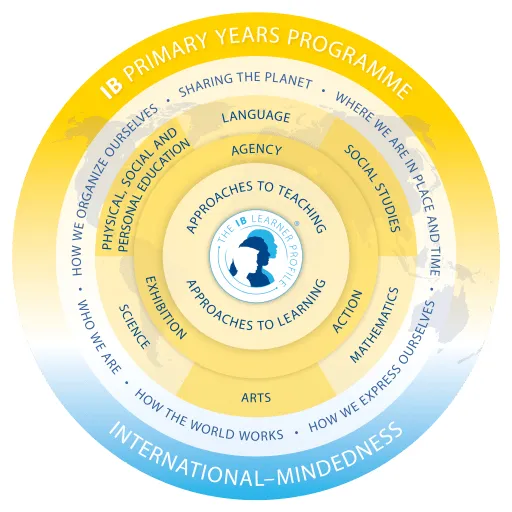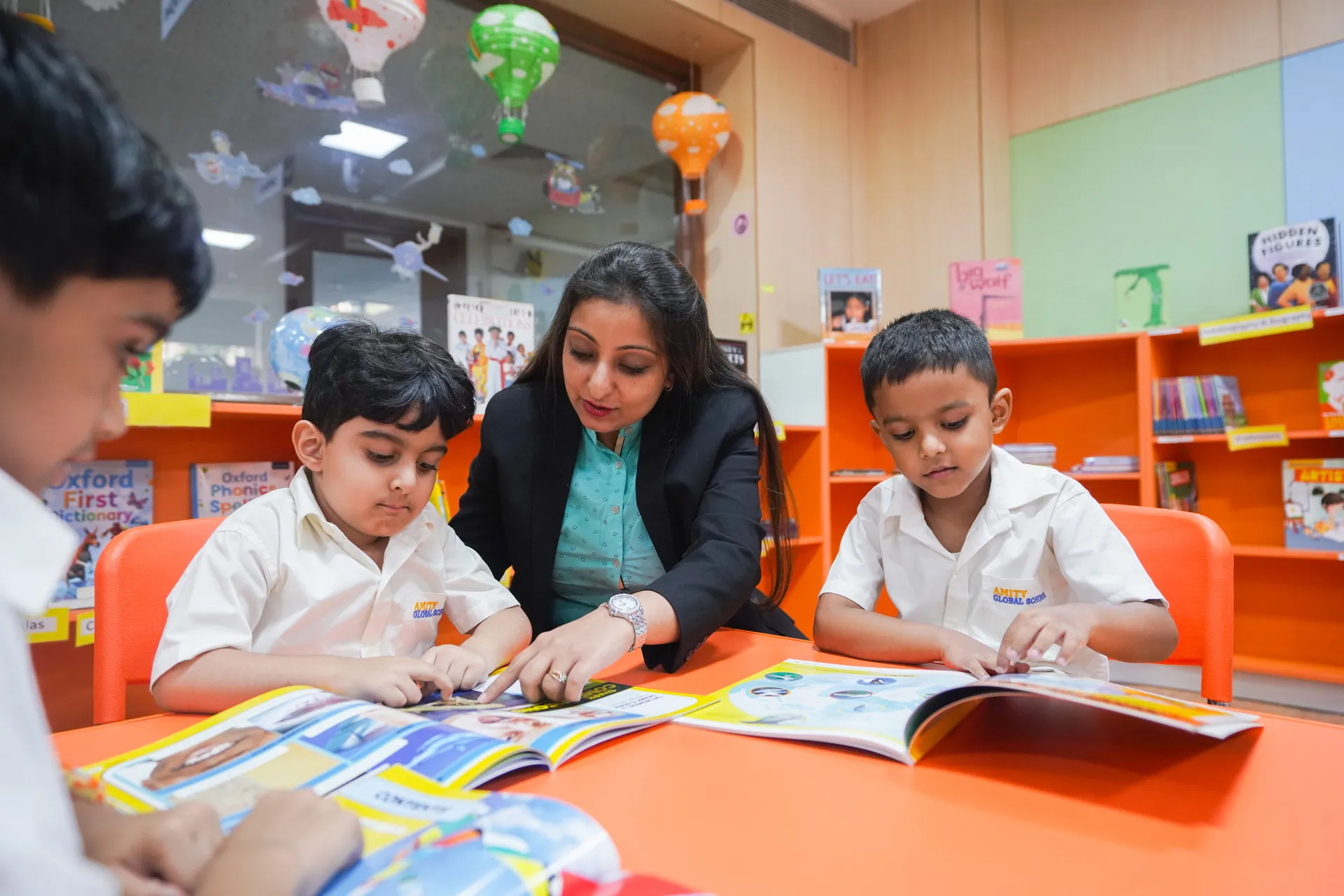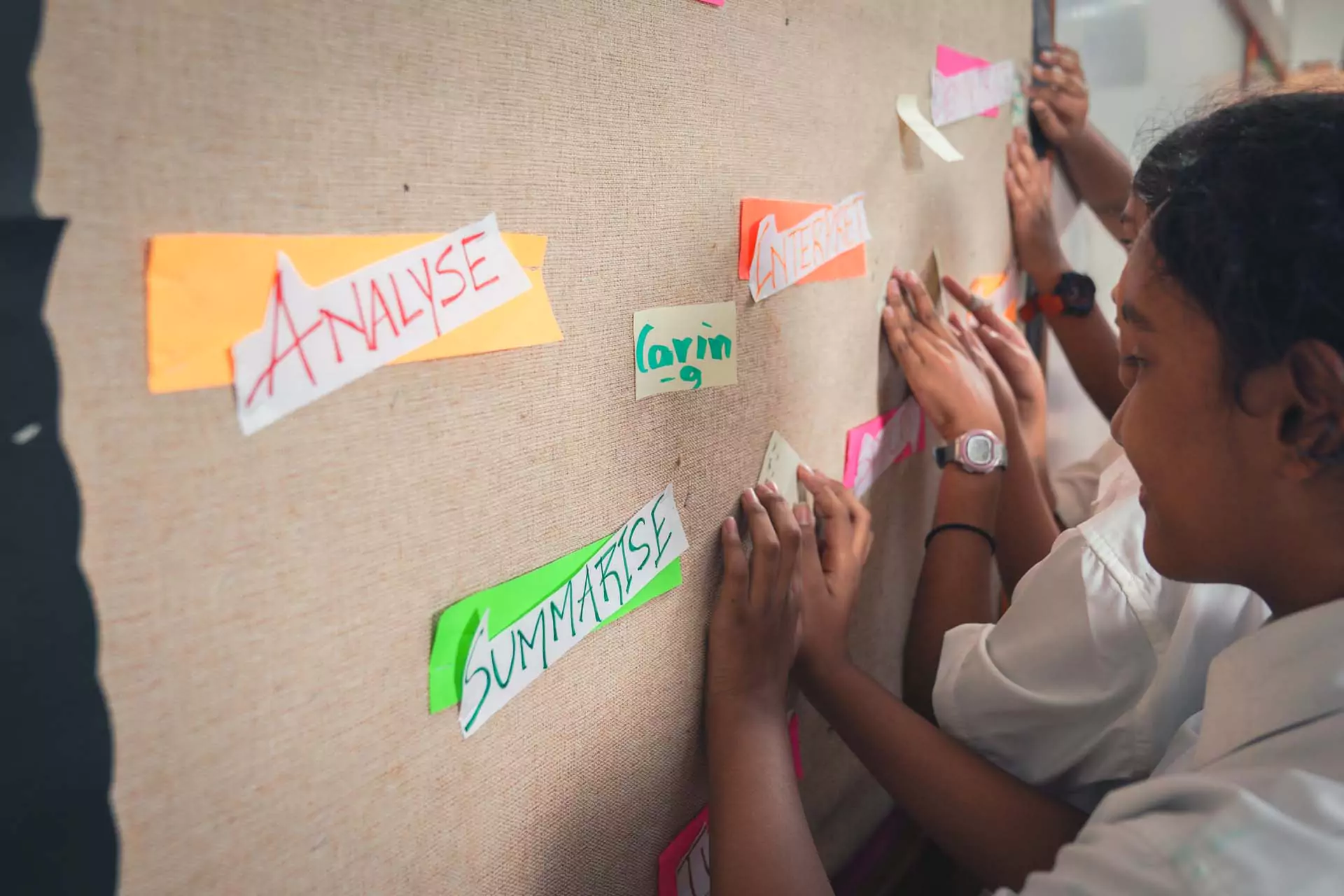PRIMARY YEARS (AGES 6-11)

The IB Primary Years Programme for ages 6 to 11 nurtures curious, confident learners through an inquiry based approach that goes beyond textbooks. Learning is integrated across subjects, helping children make real world connections while developing strong foundations in language, mathematics, science, and social understanding. The programme focuses equally on academic growth, life skills, and values, encouraging students to think critically, communicate clearly, collaborate effectively, and take responsibility for their learning. With a strong emphasis on international mindedness and character building, the PYP shapes compassionate, reflective, and independent learners prepared for future academic and personal success.
What is the IB PYP?
The International Baccalaureate® (IB) Primary Years Programme is a curriculum framework designed for students aged 3 to 11 and is designed as an engaging, student-centred curriculum that teaches children to become independent, lifelong learners and critical thinkers.
PYP is a concept-based curriculum. Unlike other curricula that focus mainly on factual knowledge, the PYP focuses on ideas that are broad, abstract, timeless and universal. These concepts help to weave essential understandings across, between and beyond subjects areas and to transfer learning to new contexts.
The IB PYP framework offers several advantages over other frameworks, especially in critical subject areas.

© International Baccalaureate Organization 2024

How will my child learn?
Inquiry-based learning is the leading pedagogical approach of the Primary Years Programme(PYP); it recognizes students as being actively involved in their own learning and as taking responsibility for that learning. Through inquiry, students not only acquire a wealth of knowledge, but also learn how to learn. Amity Global School puts a strong emphasis on connecting learning with real-life experience through field trips, guest speakers, and supporting each other as well as the community around us. Inquiry-based teaching and learning helps students take action by using what they have learned.

Essential Elements of PYP?
The five essential elements of the PYP play a key role in the development of students’ learning. By emphasising these 5 components, the PYP provides a rigorous programme for young learners, equipping them to excel in the classroom and beyond. This framework ensures that learning is engaging and relevant to the challenges of living in a diverse, 21st-century society.
Eight key concepts, often expressed as questions, help students to explore overarching themes and identify patterns within and across subjects. The concepts are the following:
- Form - What is it like?
- Function - How does it work?
- Causation - Why is it like it is?
- Change - How is it changing?
- Connection - How is it connected to other things?
- Perspective – What are the points of view?
- Responsibility – What is our responsibility?
- Reflection – How do we know?
Learning is an active process. To help students in this process, students apply the strategies and techniques that comprise thinking, research, communication, social, and self-management skills. These are known as the Approaches to Learning.
To become internationally minded, students learn how to embody a range of characteristics that promote intellectual, personal, emotional and social growth. The development and demonstration of the learner profile attributes help students become active and caring members of the community.
At the heart of taking action is a belief that each person sees him or herself as an agent for change. By taking thoughtful individual and collective action, students exercise their personal agency by making responsible choices and reflecting on their impact.
Amity Schools Noida uses cookies to provide necessary website functionality, improve your experience and analyze our traffic. By using our website, you agree to our Privacy Policy OKAY
